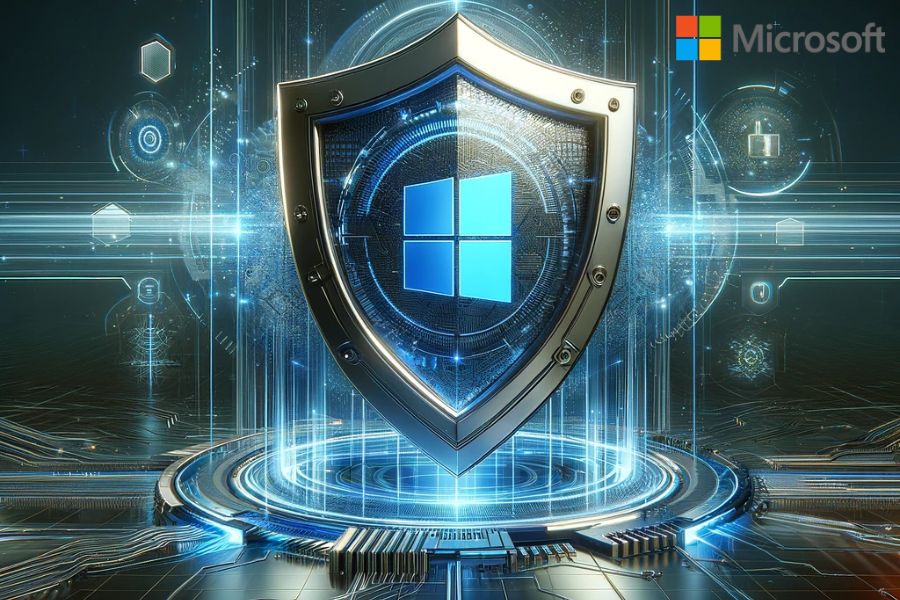Microsoft Cybersecurity: Their Commitment to a Robust Digital Defense
Microsoft Cybersecurity
Microsoft’s unwavering commitment to enhancing the cybersecurity landscape is evident through its comprehensive suite of security solutions and initiatives.
At the heart of this commitment lies the Secure Future Initiative, a strategic program designed to strengthen cybersecurity protection, harness the innovative capabilities of AI, and promote cybersecurity best practices on a global scale.
Microsoft Cybersecurity Leadership
Microsoft’s role in the cybersecurity realm is expansive, transcending the traditional confines of cloud services. The annual Microsoft Digital Defense Report is a testament to the company’s relentless pursuit of cybersecurity excellence.
It highlights Microsoft’s proactive stance in monitoring and neutralizing cyber threats. With Azure security and advanced threat intelligence, Microsoft delivers robust cybersecurity solutions tailored to the dynamic challenges of the cybersecurity community.
Empowering the Cybersecurity Workforce
A critical aspect of Microsoft’s cybersecurity policy is addressing the acute shortage of skilled cybersecurity professionals. Through educational platforms like Microsoft Learn and the Identity Fundamentals Certification, Microsoft is at the forefront of cybersecurity education.
These programs are meticulously crafted to impart essential cybersecurity skills, thereby fostering a workforce adept at navigating the complexities of cyber threats in our digital era.
AI-Powered Cybersecurity
In recognition of the transformative impact of AI and automation in cybersecurity, Microsoft’s Secure Future Initiative is determined to use AI to enhance security measures significantly.
By employing AI, Microsoft has been able to accelerate the deployment of security updates and reduce cloud vulnerabilities by a remarkable 50%. This strategic embrace of AI and automation positions Microsoft as a pinnacle in the industry, setting a benchmark for cybersecurity best practices that resonate throughout the tech sector.
Global Collaboration for Cybersecurity
Microsoft’s cybersecurity endeavors are not confined to its operations but extend to the international community. The company advocates for a collective approach to cybersecurity protection, urging nations to publicly renounce the exploitation of software vulnerabilities and the harbouring of cybercriminal activities within their jurisdictions. This advocacy for international cooperation is a stride towards fostering a more secure digital environment for countries globally.
Microsoft’s Secure Future Initiative is a shining example of the company’s dedication to cybersecurity. By leveraging AI and automation, nurturing cybersecurity professionals, and championing global cybersecurity best practices, Microsoft is steadfast in its mission to safeguard customers, critical infrastructure, and sensitive data against the burgeoning spectrum of cyber threats. Microsoft’s leadership in cybersecurity is symbolic of the company’s commitment to setting the standard for effective cybersecurity policy and practice.
Expanding on Microsoft’s Cybersecurity Solutions
Microsoft’s cybersecurity solutions, including Microsoft Azure and Microsoft Security, are engineered to provide unparalleled protection against a wide array of cyber threats, from malware and ransomware to sophisticated cyberattacks.
The company’s approach to cybersecurity is holistic, encompassing not only the development of cutting-edge security solutions but also the fortification of the cybersecurity landscape through education and policy advocacy.
Cybersecurity Challenges and Microsoft’s Response
The cybersecurity landscape is constantly evolving, with new cybersecurity threats emerging at an alarming rate. Microsoft’s cybersecurity analysts and experts are dedicated to exploring cybersecurity vulnerabilities and developing new security technologies to counteract these threats.
The company’s commitment to information security is evident in its security development lifecycle, a rigorous process that ensures security is integrated into software development from the outset.
Microsoft’s Role in Shaping Cybersecurity Education
Microsoft is also a pioneer in cybersecurity education, offering additional resources and course materials to those interested in exploring the cybersecurity landscape and learning new cybersecurity skills. The Identity Fundamentals Certification, for example, is an essential credential for professionals focusing on identity and access management, a critical component in authentication and cybersecurity protection.
Microsoft’s cybersecurity intelligence capabilities are crucial in identifying and thwarting espionage efforts that governments may not detect, thereby protecting national and international cybersecurity interests.
The Future of Cybersecurity with Microsoft
Looking to the future, Microsoft is determined to use AI and automation not only to enhance its own security solutions but also to enable customers with more secure default settings.
The company plans to expand its current default policies to a wider band of customer services, products, and platforms, ensuring that security is a top priority across Microsoft’s offerings.
Microsoft’s Advocacy for a Safer Cyber World
Microsoft’s advocacy extends to the international community, where it engages with the cybersecurity company Tenable and other stakeholders to promote a safer cyber world. The company’s efforts to protect customers and the security community are a reflection of its commitment to creating a secure and resilient digital infrastructure for countries around the world.
Microsoft’s Secure Future Initiative takes proactive measures to mitigate cloud vulnerabilities, ensuring that software vulnerabilities in the networks are addressed before they can be exploited, safeguarding not only businesses but also the data privacy of innocent civilians in a future where digital security is paramount. Through the use of advanced AI, Microsoft has demonstrated the capacity to mitigate cloud vulnerabilities by 50%, setting a new industry standard for cloud security.
Conclusion
Microsoft’s Secure Future Initiative represents a strategic commitment to advancing the cybersecurity landscape, showcasing the company’s dedication to protecting sensitive data and critical infrastructure. This initiative is a multifaceted approach that includes enhancing cloud computing security, empowering the cybersecurity workforce, and advocating for global cybersecurity best practices.
At the forefront of Microsoft’s cybersecurity efforts is the Azure cloud platform, which incorporates robust security measures to safeguard against cyber threats. Microsoft’s annual Digital Defense Report reflects the company’s proactive stance in monitoring and addressing cybersecurity challenges, utilizing Azure’s security and threat intelligence capabilities to deliver effective solutions that adapt to the evolving demands of the cybersecurity community.
Recognizing the crucial need for skilled cybersecurity professionals, Microsoft has invested in cybersecurity education and training. Through resources like Microsoft Learn and the Identity Fundamentals Certification, the company is actively working to mitigate the shortage of trained cybersecurity experts. These educational initiatives are essential for developing a workforce that is equipped to handle the complex cybersecurity threats of a digital world.
AI and automation play a pivotal role in Microsoft’s cybersecurity strategy. The Secure Future Initiative leverages these technologies to enhance security protocols, achieving significant reductions in cloud vulnerabilities. By integrating AI, Microsoft not only improves its own security measures but also sets an industry standard, encouraging the adoption of best practices across the tech sector.
In conclusion, Microsoft’s Secure Future Initiative is a comprehensive effort to elevate cybersecurity standards. By leveraging AI, nurturing cybersecurity talent, and fostering international cooperation, Microsoft is addressing the spectrum of cyber threats. The company’s leadership in cybersecurity serves as a model for effective policy and practice, aiming to protect not only its customers but also the broader digital ecosystem.












